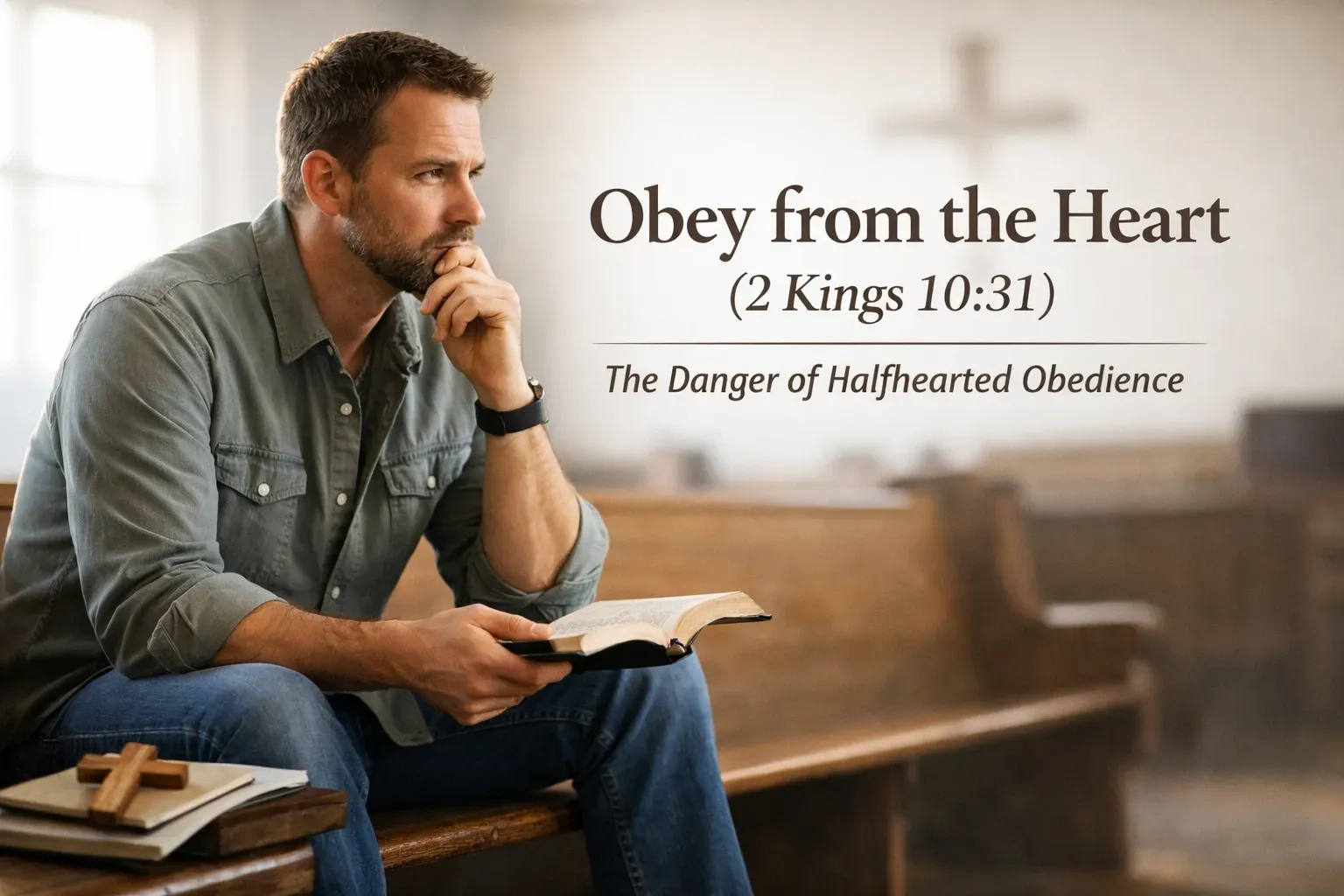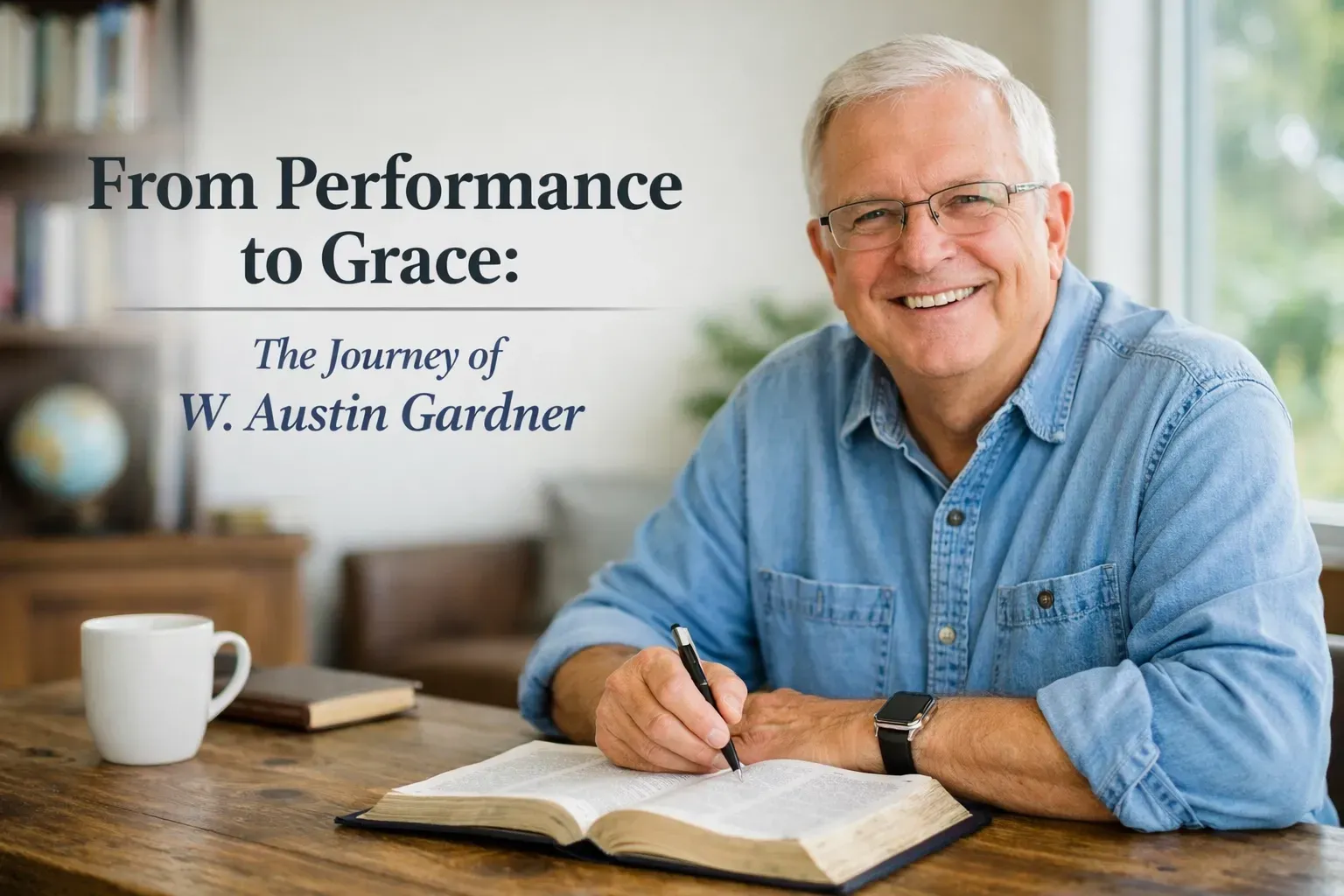When we retain an offense in our hearts, we filter everything through it.
Today's Gleanings

Satan enjoys seeing Christians get a head-knowledge of victory without a heart-experience, because this lulls believers into a false security, and Satan finds them an easy prey. It is not the reading of truth, or even the enjoying of truth that brings the blessing. It is the doing of the truth.
Warren W. Wiersbe,
The Strategy of Satan: How to Detect and Defeat Him (Wheaton, IL: Tyndale House Publishers, 1996), 10.
*********************
Why would Satan want to attack your mind? Because your mind is the part of the image of God where God communicates with you and reveals his will to you. It is unfortunate that some Christians have minimized the significance of the mind, because the Bible emphasizes its importance.
Warren W. Wiersbe,
The Strategy of Satan: How to Detect and Defeat Him (Wheaton, IL: Tyndale House Publishers, 1996), 16–17.
*********************
If Satan can get you to believe a lie, then he can begin to work in your life to lead you into sin. This is why he attacks the mind, and this is why we must protect our minds from the attacks of the wicked one.
Warren W. Wiersbe,
The Strategy of Satan: How to Detect and Defeat Him (Wheaton, IL: Tyndale House Publishers, 1996), 18.
*********************
When you start to question or forget the grace of God and the goodness of God, you will find it much easier to disobey the will of God.
Warren W. Wiersbe,
The Strategy of Satan: How to Detect and Defeat Him (Wheaton, IL: Tyndale House Publishers, 1996), 22.
*********************
God accomplishes his will on earth through truth; Satan accomplishes his purposes through lies. When the child of God believes God’s truth, then the Spirit of God can work in power; for the Holy Spirit is “the Spirit of truth” (John 16:13). But when a person believes a lie, then Satan goes to work in that life; “for he is a liar, and the father of lies” (John 8:44). Faith in God’s truth leads to victory; faith in Satan’s lies leads to defeat.
However, Satan never advertises, “This is a lie!” He is the serpent, the deceiver, and he always masquerades his lies as God’s truth.
Warren W. Wiersbe,
The Strategy of Satan: How to Detect and Defeat Him (Wheaton, IL: Tyndale House Publishers, 1996), 23.
*********************
Plank is Jesus’s word for what is wrong with us; it is the sin in us, the evidence of our fallen nature. It is what makes us so eager to point the finger rather than to forgive.
*********************
If I must know that there is no plank in my eye before I can offer any sort of correction to or warning about an evil person, I have to say here and now that I am out of the picture! I will never be among those qualified to judge.
Matthew 7:5 is surely saying at least one of three things:
• No one ever gets rid of the plank; therefore, no one can ever judge.
• We can get rid of the plank and then—and only then—can we judge another person.
• The best situation occurs when one focuses on his or her own plank, and then self-effacingly offers correction to another in a way that will be most welcomed.
*********************
No one can remove the plank in his or her own eye absolutely. If we could, we would be sinless and in no need of salvation! If Jesus were saying that the removal of the plank is possible, it would cause self-righteousness to flourish more than ever. People everywhere would claim to be qualified to point the finger.
*********************
A few years ago two elders had the task of approaching a man in their church who was in an adulterous relationship. On their way to the man’s home, one elder said to the other, “Do you believe that you too could fall into this sin?” The reply was, “No.” The elder who asked the question then said, “You are not qualified to approach this man”—and the visit was canceled. The essential qualification for a spiritual confrontation is the attitude required by Paul in Galatians 6:1, one of humility and self-searching.
Here is a rule of thumb to follow: the one who is hardest on himself or herself will probably be the gentlest with others. Those who are most aware of their own weaknesses are most likely to be able to help others. The one who doesn’t moralize but rather encourages others to become more like Christ is the one most qualified to engage in the ministry of reconciliation and restoration. The person who wants to help in a nonjudgmental way is aware of his own weaknesses. This person is more likely to succeed when others fail and to be welcomed when the meddler is rejected.
*********************
When We Can’t Help Another
To summarize, Jesus has provided some objective principles to follow when determining when it is right and wrong to judge.
You should rule yourself out when:
1. Your nose is out of joint because something or someone has gotten your goat. In other words, when you are churned up, stay out.
2. You are personally or emotionally involved. Even if an injustice has been committed, you should stay out of the situation—unless you have specifically been asked to testify or give your opinion.
3. Your desire is to punish or get even.
4. There is envy or jealousy in your heart.
5. Your own self-esteem is related.
When We Can Help Another
You are able to help when:
1. You are meeting a need. (To refresh your memory on this, here is the NEED acrostic I mentioned in chapter 4.)
• Necessary—Is it necessary to say this?
• Encourage—Will this encourage them? Will it make them feel better?
• Edify—Will it edify? Will what you say build them up and make them stronger?
• Dignify—Will it dignify that person? Jesus treated other people with a sense of dignity.
1. You would be irresponsible not to speak out. It is appropriate to get involved if you are in a strategic position to help.
2. You have been asked to step in by a responsible person who has no agenda.
3. You are utterly impartial and have no agitation or feeling of being annoyed.
4. Nothing matters to you more than the honor of God. Be careful! Many meddlers use this as their justification. One day you will find out whether it really was God’s honor you cared about—or just your own!
R. T. Kendall,
Total Forgiveness: When Everything in You Wants to Hold a Grudge, Point a Finger, and Remember the Pain - God Wants You to Lay It All aside (Lake Mary, FL: Charisma House, 2010).
*********************
Although she willingly lived in a native hut and accepted the Africans for who they were, she entered their world with a spirit of domination. “It is necessary,” she wrote, “that the missionary continually hold an attitude of superiority. Not in the sense of ‘we are better than you.’ God forbid! But rather in the sense of claiming and using authority. The missionary must prove himself or herself to be ‘boss’ (not bossy), commanding and demanding obedience.” This kind of paternalism (or maternalism in this case) was the norm, and she as much as any missionary was a product of her generation. But such attitudes nevertheless contributed to the bitter animosities that led to violent revolution in that part of the world only a few decades later.
Ruth A. Tucker,
From Jerusalem to Irian Jaya: A Biographical History of Christian Missions, Second Edition (Grand Rapids, MI: Zondervan, 2004), 305.
*********************
I wasn’t God’s first choice for what I’ve done for China. There was somebody else.… I don’t know who it was—God’s first choice. It must have been a man—a wonderful man. A well-educated man. I don’t know what happened. Perhaps he died. Perhaps he wasn’t willing.… And God looked down … and saw Gladys Aylward.
Ruth A. Tucker,
From Jerusalem to Irian Jaya: A Biographical History of Christian Missions, Second Edition (Grand Rapids, MI: Zondervan, 2004), 311.
*********************
The Student Volunteer Movement (SVM) was born in Mount Hermon, Massachusetts, in 1886, though the impetus for its development occurred even earlier when seven Cambridge University students turned their backs on their career ambitions and committed their lives to foreign missions. The movement prospered for some fifty years, during which time, according to J. Herbert Kane, “it had been instrumental in sending 20,500 students to the foreign mission field, most of them from North America.”1 During the early twentieth century it is estimated that student volunteers constituted half of the total Protestant overseas missionary force. Most of them worked among the people of the older developed civilizations of Asia—particularly China, where approximately a third of them served. The next largest concentration was in India. Mission leaders passionately pleaded for “men and women of literary tastes” to go to China, and the call was answered.
1 J. Herbert Kane, A Concise History of the Christian World Mission (Grand Rapids: Baker, 1978), 103.
Ruth A. Tucker, From Jerusalem to Irian Jaya: A Biographical History of Christian Missions, Second Edition (Grand Rapids, MI: Zondervan, 2004), 312.
In an era when some (or “most,” in the evaluation of Hudson Taylor) missionaries had become “self-indulgent and idle,” the student volunteers were a striking contrast. They were driven by an intensity of purpose that has rarely been equaled, and they were committed to evangelizing the world by whatever means was necessary.
Ruth A. Tucker,
From Jerusalem to Irian Jaya: A Biographical History of Christian Missions, Second Edition (Grand Rapids, MI: Zondervan, 2004), 313.
*********************
“Protestant liberalism, de-emphasizing and demythologizing miracles and biblical authority, introduced the powerful but crippling secularism into Chinese Christianity.” According to Kenneth S. Latourette, this “secularizing movement” was the most important factor influencing Christianity’s losses in China in the face of communism.
Ruth A. Tucker,
From Jerusalem to Irian Jaya: A Biographical History of Christian Missions, Second Edition (Grand Rapids, MI: Zondervan, 2004), 313.
*********************
A sign on a door inscribed with the words “Cannibals Want Missionaries” changed the course of Studd’s life. On further inquiry, he heard of hundreds of thousands of tribal people in Central Africa who had never heard the gospel because “no Christian had ever gone to tell of Jesus.” The shame sank deep into his soul: “I said, ‘Why have no Christians gone?’ God replied, ‘Why don’t you go?’ ‘The doctors won’t permit it,’ I said. The answer came, ‘Am I not the good physician? Can I not take you through? Can I not keep you there?’ There were no excuses, it had to be done.”
Ruth A. Tucker,
From Jerusalem to Irian Jaya: A Biographical History of Christian Missions, Second Edition (Grand Rapids, MI: Zondervan, 2004), 316.
*********************
Mott had all along stressed the social dimensions of world evangelism, but never to the extent of making it a primary focus. Yet he was forced to come to terms with the “social gospel shift” that was emerging in missions. Social service, he insisted, is “one of the most distinctive calls of our generation,” and one intrinsically tied to personal evangelism: “There are not two gospels, one social and one individual. There is but one Christ who lived, died, and rose again, and relates himself to the lives of men. He is the Savior of the individual and the one sufficient Power to transform his environment and relationships.”21
It was Mott’s more traditional stance that led to his declining influence during the last years of the SVM. The younger generation was more concerned with social problems on the home front.
21 Quoted in Ibid., 276.
SVM Student Volunteer Movement
Ruth A. Tucker,
From Jerusalem to Irian Jaya: A Biographical History of Christian Missions, Second Edition (Grand Rapids, MI: Zondervan, 2004), 322–323.
*********************
Immature Christians are less likely to follow the leading of the Spirit of God. Most often they react or respond emotionally or intellectually to circumstances they face. They have not yet learned to act only on the Spirit of God’s leading.
John Bevere,
The Bait of Satan, 20th Anniversary Edition (Lake Mary, FL: Charisma House, 2014), 66.
*********************
Just as Jesus learned obedience by the things He suffered, we learn obedience by the difficult circumstances we face. When we obey the Word of God that is spoken by the Holy Spirit, we will grow and mature in the times of conflict and suffering. Our knowledge of Scripture is not the key. Obedience is.
John Bevere,
The Bait of Satan, 20th Anniversary Edition (Lake Mary, FL: Charisma House, 2014), 67.
*********************
There is a false sense of self-protection in harboring an offense. It keeps you from seeing your own character flaws because the blame is deferred to another.
John Bevere,
The Bait of Satan, 20th Anniversary Edition (Lake Mary, FL: Charisma House, 2014), 68.
*********************
When we retain an offense in our hearts, we filter everything through it.
John Bevere,
The Bait of Satan, 20th Anniversary Edition (Lake Mary, FL: Charisma House, 2014), 68.
*********************
It’s the Word God uses to convict. That’s why expository evangelistic speaking is needed. If a passage of Scripture is ripped out of its original context and taken to mean something the writer of Scripture never intended it to mean, it is no longer the Word of God. At that point, we have preached our words, not God’s Word.
R. Larry Moyer,
Show Me How to Preach Evangelistic Sermons, Show Me How Series (Grand Rapids, MI: Kregel Academic & Professional, 2012), 37–38.
*********************
The word Scripture uses is “believe”—which means understanding that Christ died for me, arose, and that I have to trust Christ alone to save me. To imply that people are saved by saying a prayer in which they invite Jesus into their hearts may be as damaging as saying we are saved by good behavior. It is also confusing to children and others who think in concrete terms. They cannot picture how Jesus can physically walk into their hearts. Expository evangelistic preaching guards against false theology. It makes us examine everything we say with the standard, “Is this what the Bible says?”
R. Larry Moyer, Show Me How to Preach Evangelistic Sermons, Show Me How Series (Grand Rapids, MI: Kregel Academic & Professional, 2012), 40.











